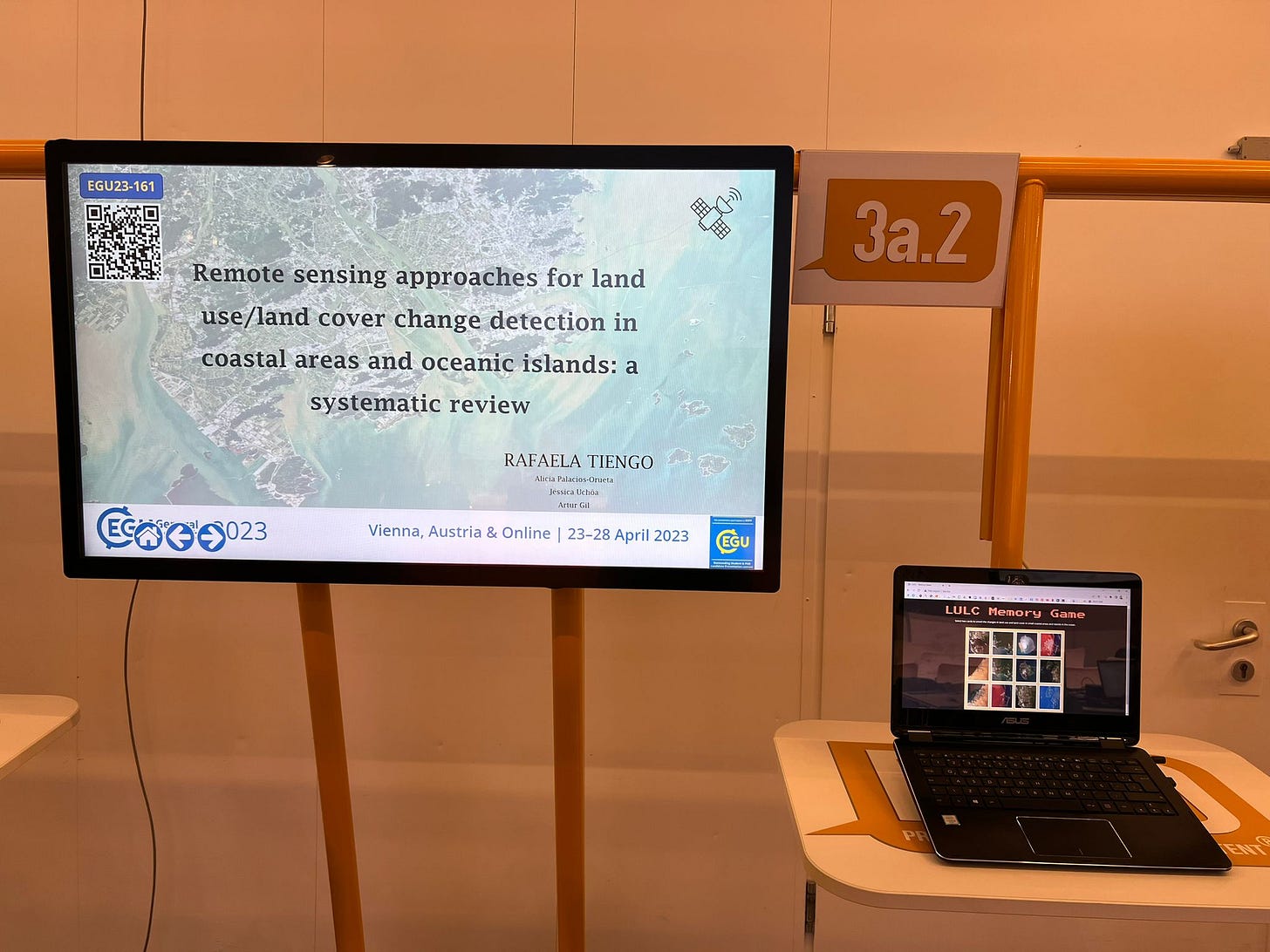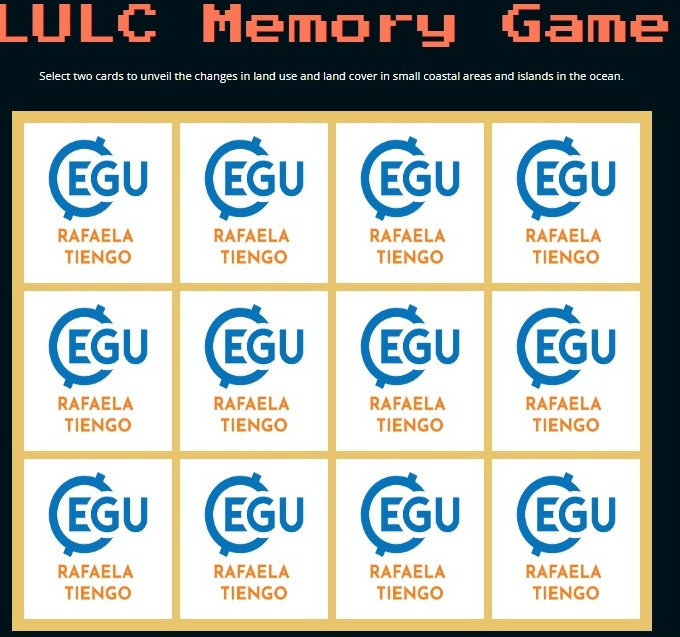This newsletter issue will be a little bit different than usual. This week I attended the EGU 2023 in Vienna and I did a recap of what happened there and I shared interesting talks and sessions that I've attended in order to make science more accessible for those who - for some reason - did not attend the conference this year.
I hope you all enjoy it!
If you are not a subscriber, please, consider it. You are very welcome.
The EGU General Assembly 2023 is a gathering that unites geoscientists worldwide for a single event that encompasses every aspect of Earth, planetary, and space sciences. The EGU's objective is to establish a platform where scientists, particularly those who are just starting their careers, can showcase their research and exchange ideas with professionals in every geoscience field.
➡️ Here are some numbers about the EGU 2023:
My first presentation ever at EGU
I attended the EGU for the first time and had the opportunity to present a portion of my PhD research. The presentation's title was "Remote sensing approaches for LULC change detection in coastal areas and oceanic islands: a systematic review".
During my presentation, I delved into the topic of remote sensing and its importance in detecting and monitoring changes in land use and land cover in coastal areas and oceanic islands. The research I presented was a systematic review that evaluated the effectiveness of various remote sensing techniques in detecting these changes.
📰 Check my abstract here: "Remote sensing approaches for LULC CD in coastal areas and oceanic islands: a systematic review"
After my presentation, attendees had the opportunity to enjoy a game that my co-author, Jéssica Uchôa, and I created especially for the EGU 2023.
The game, called "LULC Memory Game", challenged visitors to match satellite images of coastal areas or islands before and after a specific event or time period in which noticeable changes occurred.
The game aimed to raise awareness of the importance of remote sensing in detecting changes in land use and land cover. It was a fun and interactive way to engage with conference attendees and showcase our research to a wider audience.
Exploring the Latest Advances in Geosciences: Highlights from EGU 2023
Here are some interesting talks, sessions and short courses that I've attended during the EGU 2023 and maybe is helpful and interesting to you!
➡️ Estimation of soil CO2 flux emissions at Fogo Volcano (São Miguel Island, Azores)
➡️ Radon (222Rn) in volcanic islands (Azores): Implications for public health
➡️ European Research Council (ERC) Funding Opportunities in Geosciences
➡️ New Copernicus Data Access Service
➡️ Global Warming in Spanish Cities (1971-2022)
➡️ Introduction to Geospatial Raster and Vector Data with Python
➡️ Practicing Open Science (1): The principles, ecosystem, and tools
➡️ Practicing Open Science (2): Data, Software, and other Results
➡️ A novel framework for vegetation change characterization from time series Landsat images
➡️ Characterizing forest structure using LiDAR and multi-frequency SAR remote sensing
➡️ Automatic Land Cover Segmentation from Perfect Sensor Stereo Images with Height Information
➡️ Response of vegetation indices to drought in western Spain
➡️ Modelling inter-event times from central volcanoes at São Miguel Island (Azores)
➡️ Sudden shallow dyke intrusion at São Jorge Island (Azores) after 60 years of repose
➡️ The use of infrasound monitoring in the 2022 São Jorge Island (Azores) seismovolcanic crisis
➡️ Reconstruction of Azorean eruptive scenarios through the correlation of proximal and distal tephras
➡️ Chemical composition and 87Sr/86Sr signatures of rainwaters from São Miguel, Azores
➡️ Periodical behaviour of air CO2 time series after Cumbre Vieja volcanic eruption
Thanks for reading! See you next week!
Don't forget to like it and comment.
I appreciate it and I love to hear from you.
With love,
— Rafaela Tiengo






